I met Julie in February of 2019 amidst the majestic coastal Redwoods of California during a live immersion training to become a Flow Genome Project Peak Performance Coach. A few days in I saw this woman out of the corner of my eye, blonde, focused, yet somehow exuding tenderness. She reminded me of someone I knew, also reminding me a bit of myself. I just had to meet her!
Being the introvert that I am, it was going to take a couple passes of Divine Timing for that step to happen. We had a few interactions that weekend, of what I remember most sitting in the center of the Sanctuary, where all our talks were held, blitzed out from lack of sleep, wearing my bright neon pink beanie, she walked by and laughed directly while looking at me. I flashed a cheesy awkward smile sinking a little inside wondering ‘Was she laughing AT me???’ A few minutes later she walked by again closer this time putting her hand on my shoulder and said, “I really like your hat.” My internal voice, ‘Ohhh she likes my hat.’ Another voice, ‘But does she really?’ I ping ponged between those two questions for a bit then let it go. Didn’t matter, I liked my hat!
The next morning in the Sanctuary I noticed Julie was wearing a similar bright neon pink beanie. The sinking sense from the day before that I’d covered up with my own validation dropped down into my gut like a boulder hitting a target confirming, ‘Oh!!! She really DOES like my hat!’
Lucky for me Julie became my mentor for the next several months of the program leading our #TeamNITRO boat crew through very choppy waters. After our first interactions I just knew I wanted to learn from this woman. What exactly, I had no idea. So, I just kept showing up and listening. Which is a funny thing, because as a mentor there’s really not a lot of talking it’s mostly listening. So, I listened.
The mentorship turned into friendship these last several years for me because I decided to shed my introverted skin and keep reaching out to her. I had questions. Things I wanted to know about. Things I needed help with. And something in my gut was telling me that Julie had answers. We were aligned in several inquiries and conversed about a lot. Art, creativity, intuition, writing, feminine aspects, being soft and strong.
The special thing about Julie is she exudes the aspects of mentorship that one would hope for. She doesn’t want anything from you, and she’s capable of answering a question by wrapping it up and handing the very same question back to you like a gift. So, at the end of the day, it wasn’t her answers I was receiving, it was my own from a new unexplored space that I now felt safe enough to enter while she was around. My very own heart and gut.
I asked Julie to be a part of the How to be Human series because I’ve been absolutely floored by the ways she’s handled my inquiries in the past and was genuinely curious how she’d answer these questions.
Question 1: How to be human? And what is the best integration of humanness?
“It’s a tricky question because I feel like my understanding of how to be a human has changed as I’ve gone from child, to mother, to adult.”
“As a kid I thought that to be human meant, and it still is to some degree, that we were meant to be the stewards who take care of everything. Humans were the responsible beings on the planet, the caretakers. It was my understanding that we got intelligence and with intelligence came the burden. We had to take care of things.”
“And then, growing up I realized… Well that’s not the case, people use whatever they need and want and they’re not necessarily caring or giving back.”
“I’ve been listening to Braiding Sweetgrass (by Robin Wall Kimmerer). It’s a good book, I highly recommend it. It seemed like the Native Americans, particularly the Potawatomi tribe that Kimmerer is from, gave thanks for everything they took from the earth. And that seems decidedly human to me.”
I nod in understanding as she continued, “You know? Just understanding that, we’re here with a whole lot of other living things, trees, grass, plants, rocks, animals, and we can’t just take, take, take, we always should be giving back and giving thanks for what we take.
Again my understanding of being human shifted when I became a mother. I never wanted to feel like I had power over my kids. I was always trying to understand what they wanted or needed as little people. I often found myself saying, ‘Ok, I hear you and you need to hear me too.’ We co-created reality together, not their way and not my way. We had to figure out how to do it together. And I think that is very human and that’s what we need most right now!”
“Well then how do you give thanks Julie?” I asked her.
“…working in the garden barefoot and just being connected to the earth. And giving thanks to nature... for the clouds and the sun and the sky, the birds chirping, you know just being alive in a place that has aliveness around me.”
-Julie
“Recently, I’ve been working in my garden a lot, and really loving it. Being in my garden feels like it’s helping me feel more human and alive on this planet in a way that feels very natural. You know, going outside and working in the garden barefoot and just being connected to the earth. And giving thanks to nature... for the clouds and the sun and the sky, the birds chirping, you know just being alive in a place that has aliveness around me.”
Question 2: How do you think we can intentionally engage all humans to be more human?
She took a big breath… “If that was an easy question we’d be in a better place right now wouldn’t we?
I think good communication, good listening and actually trying to understand someone. You know, if you can actually listen to someone and try to get their perspective, then you’ve got a foothold for where you can say, ‘Ah, yeah I hear that.’ It’s the start of a connection... then, ‘That makes total sense to me and this is the way I felt.’ If they feel heard then maybe then they’ll reciprocate and listen to you.... Right? If they feel understood then they’ll try to understand you, and that could be beautiful. It sometimes feels like everybody just wants to argue and fight right now and say no my opinion is better and this is why you’re a stupid fuck!”
With that, we both busted up laughing, knowing this situation all too well. I wondered, “What do you do when someone is not listening? What if the other party just isn’t listening?”
“Sometimes people just don't listen and they don’t hear and they don’t want to change their opinion... that’s just that,” Julie responded.
Then she continued, “I’ve got someone who comes to mind who is old, and curmudgeonly and very set in his ways, and when he feels heard, it is defusing, it can take the spark out of his argument. And then you can ask questions or introduce something they may not have thought of. Like oh, ok but what about this? Have you thought about this?”
“There’s often something there underneath their opinions and if you can drill deeper for understanding it can be helpful and sometimes their opinion is all they’ve ever known. If they let you… you can share your opinion, grounded and with compassion. And feel free to add…’I hear you and that does not change my opinion of why I think this’... or you know, you could just say, ‘You’re Wrong!’”
Our laughing ensued again. I think we laughed our way through this entire conversation even though we were dealing with heavy and deep subjects.
Question 3: Who for you Julie are the best examples of being human? Who are they and what do their practices look like?
“I am a Montessori teacher, so Maria Montessori is a great example of an amazing human being. She was way way ahead of her time. She saw and treated children as intellectually curious little people. She set a course that has made lasting changes in education to this day. Which is fabulous. It was a whole paradigm shift on children and education and how children should be taught, that children are intelligent, that they are capable of learning and have an intrinsic desire to learn. If given freedom to learn they would actually choose it. Montessori learned how best to educate children by observing/studying children in a prepared environment. She’s been a powerful influence in my life and having that understanding of Montessori education definitely affected the way I raised my own children. I think we as people take whatever we got as kids as that’s that. Unless you upgrade your software, you’re running the same scripts as the adults in your life as you grew up…’sit down, shut up, do the stuff, I’m the leader, listen to me.’ I don’t think it needs to be that way. Kids can actually find their genius when they’re given the space to learn at a pace that is best for them. She was amazing.
My mom has always been an inspiration. She has always been a gardener. It’s one of the places we get to really connect right now. I’m finally finding a love and passion and time for gardening. We have long talks about gardening, and she knows the name of every frickin flower. It's amazing. She has so much knowledge there.
“Ooh, Alice Walker! She wrote the book titled ‘In Search of Your Mother’s Garden.’”
“Oooh I haven’t read it yet!” I said.
Julie said, “I haven’t read it either, but I love the premise. Everybody’s Mother has an outlet for their creativity, a garden, some place or thing where they cultivated their creativity and spirituality, and if we can find those places they reveal to us something about our female ancestors.”
Julie continued about her mother, “It’s nice to have that thing where we don’t have to talk about anything else, we can just talk about gardening and we’re going to connect.”
I asked next, “Question 4: What do you think are easy reminders to be more human when someone around us is walking and talking a little less human? Perhaps more programmed or conditioned?”
“Ah you know, I’m probably not as good as I should be. When I feel like someone is just functioning on autopilot… I just kind of,” she giggled putting a passing wave in the air, ‘Nice to know ya!’, But you know you can’t do that with everybody so I guess that’s where the word forgiveness comes in. When someone’s not behaving as human as they could be…
“Forgive them for they know not what they do,” I said.
Julie went on, “Yeah you know sometimes when people are just sleepwalking through life there is a bit of that.”
I felt deeply into this question describing, “For me, and I find that it’s that bridge of sometimes I want to reach out, depends on who the person is in my life. Where’s that boundary of being too much of an “out of control healer”. Yeah, it’s a tough one and I think the question for me stems from a place of especially when they are humans you have to interact with. You have to have a conversation with or you just can’t walk away. And what do you do? You know? When you’re not feeling seen, heard, felt, understood, and whatnot.”
Julie felt into the question too adding, “Yeah, I’ve definitely given some space inside some of my relationships when I haven’t felt seen or heard and where someone is just trying to push their version of story of an event or the way they experienced something that is completely different than what I might’ve felt. And I can forgive them for whatever happened but we’re not going to re-litigate this in a way that feels good to you if it feels shitty to me, you know.”
She added, “I don’t know if that answers the question.”
I dug a little deeper to describe the question a bit more, “I guess underneath that, what stems in the question for me is, “How do we wake them up? And I don’t know if that’s my responsibility to do…”
Julie agreed, “Yeahhhh, I know that’s a really tough one. I don’t think you can wake someone up until they’re ready to wake up… (with her eyes signaling down towards me like a wise woman bearing wisdom through the screen). And to say ready, meaning, maybe you can,” she waved her hand in front of the screen several times as though she was creating rows of something, ”You can keep putting opportunities in front of them, but, you know ...how much is that your responsibility? There could be 20 people over there (pointing off screen to the side) who are ready to wake up and you’ve kept your focus on this one person. And you know if these 20 people wake up that might encourage the one you’ve been working on to wake up faster than if you keeping knocking on that same fricken door.” We both giggled and laughed hard at this.
“Oh goodness, I feel that,” I said.
“That’s definitely something I’ve learned the hard way, you know, because I’m a giver so a lot of people have utilized my giving and I don’t even notice for a long fricken time. I’m just getting drained and drained and drained until I finally realize, ‘Ohhhh they didn’t ask for this, I just kept giving of course they were happy to receive it.’
Question 5: “Next question, and it’s our final one, How do I reconcile where I am with where I want to be with grace and ease?”
“Mmm, that’s beautiful. I think you just start every day fresh, you know? And self-forgiveness…” Julie responded.
“You said one thing in there, “Start Fresh,” How does one start fresh?” I asked.
“Start fresh by forgiving yourself for the stuff or the things you didn’t do yesterday, didn’t get to. You’re not beating yourself up for the... ‘Oh I have to do that today because…’ Start off with it’s a fresh day, I’ll do my best and if it happens it happens. Right? I know that I need to do it or I want to do it and it will happen. I’m not carrying any of the shit from the day before that I was already beating myself up for not getting to it… Clean slate. New Day!” Julie exuded.
“What are some of the practices you utilize every day to start fresh and be human?” I asked next.
“Most mornings, I get up and I swim, and swimming feels like the most gorgeous fresh start to the day and no matter what is on my plate for the day... I get up with an alarm clock to go swimming. I get up to go swimming. Every day, the first thing in the water, in Austin, in an outside pool year-round ... it’s so refreshing. My morning routine is to swim or practice yoga.”
She continued, “And you know I have a breath practice and I have my partner practice. And I am becoming more consistent with my art... I would say that’s a practice, it’s just not every day cause other things get in the way. I just started a meditation practice but I do it before I go to bed at night, it’s a breath practice too, to down regulate my system before I sleep.”
We paused after asking and answering all the questions… then Julie turned the tables on me, ”So Lara, can I ask you what does it mean to be human?”
“Yes, you can… Hmmm what does it mean to be human?” I paused and closed my eyes. I really hadn’t looked at answering this question on my own yet…
Julie said, “It’s a hard question.”
I looked at her, “It’s a really hard question…” After feeling into it for a moment to see where my sense landed, “What it means to me to be a human… I think that a human is a receptive love mobile and the more that we can stay in that space of being able to receive love, the more we can actually give love and that’s when the connection, the communication, feeling seen, heard, felt actually happens. And if we all just got in that space of our receptivity and our felt senses and our intuitions we could communicate at least in a way that we feel seen and heard without even agreeing with each other. I think that would be the best space to be in. We don’t have to agree, but if we can at least have a conversation about not agreeing that would be really nice.”
Julie responded, “That’s beautiful actually. That’s really beautiful… My take away from hearing you say that is like before you have a difficult conversation with someone, you should probably ask, (and I know some people would be like that’s woo woo,) but ask them to take a couple deep breaths and really feel their heart. Feel your heart and come into this space... Feel it, and stay in that space while we have this conversation. Because, if we are human love-mobiles, if our purpose is to Love we need to stay in our hearts and not get hi-jacked in our fricken heads.. Come on back down into here.” Her hand grazed down the front of her chest toward her heart.
I put my hand on my heart too, “Yeah, it would seem to me that all my desires, or connection is filling some space in my heart or wholeness or somewhere in there that I think I’m lacking or have been fractured. And I feel like that would make it all better. You know coming into that heart space. It’s a lifelong learning process, and that’s my understanding of it as of now. Do I have it all down? Nope.” I giggled.
“Nor do I ...” Julie sing songed.
“Yay! Because I can not have it all down really well!” I exclaimed.
“That’s where self-forgiveness comes in... right?” Julie added.
“Ah yes…” I said.
Julie ended with, “Tomorrows a new day…”
Indeed it is, tomorrow is always a new day. I was surprised by Julie’s inquiry into my own questions. Although I probably shouldn’t have been, it was nice to hear myself answer the question. What is a human? And this here was an unexpected display of why I appreciate Julie so much. She gives me an opportunity to learn a little more about myself each time I’m with her. My hope is that I can impart a similar type of regenerative growth to all those I am with some day. My radical hope is that I already do just by being who I am, sharing my curiosities, listening deeply, and loving fully.
And this rounds out our final interview with some of my favorite humans about How to be Human during this very special appreciation week. Huge thanks to Julie Webster for being a part of this project. And a double thanks goes out to all you Hedge Schoolers tuning into this extremely full week of sharing.
May these conversations continue to inspire you to lean into and towards those humans who you really admire and enjoy spending time with. Until next time, be well friends.



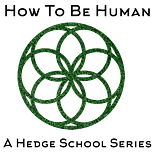

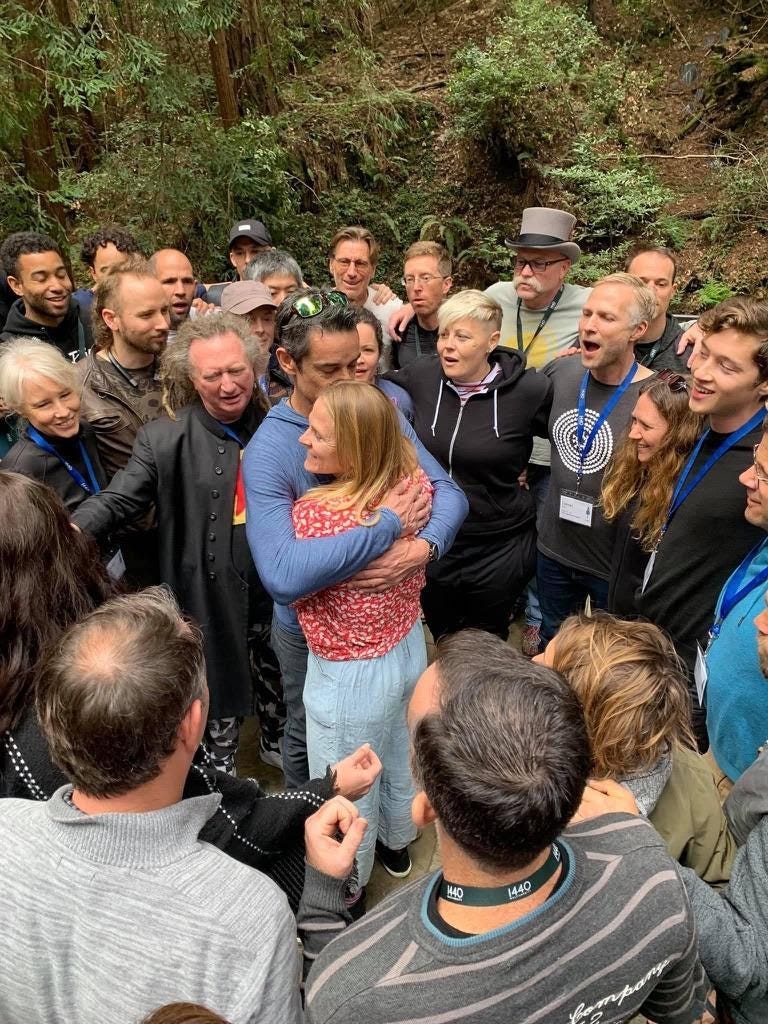
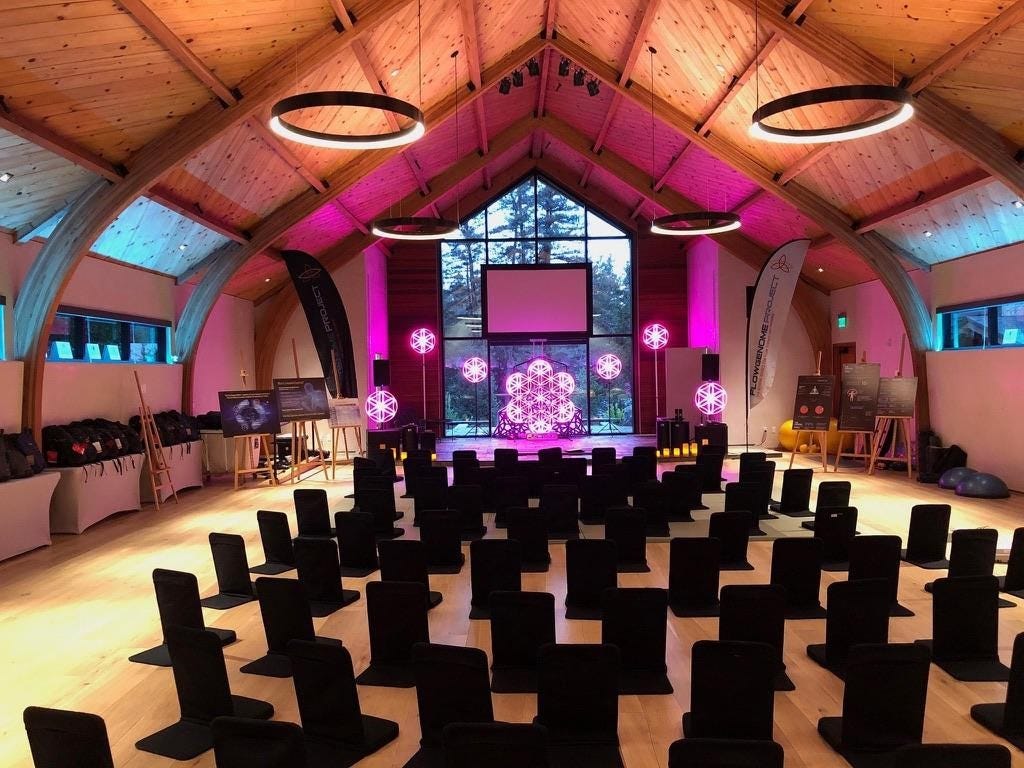
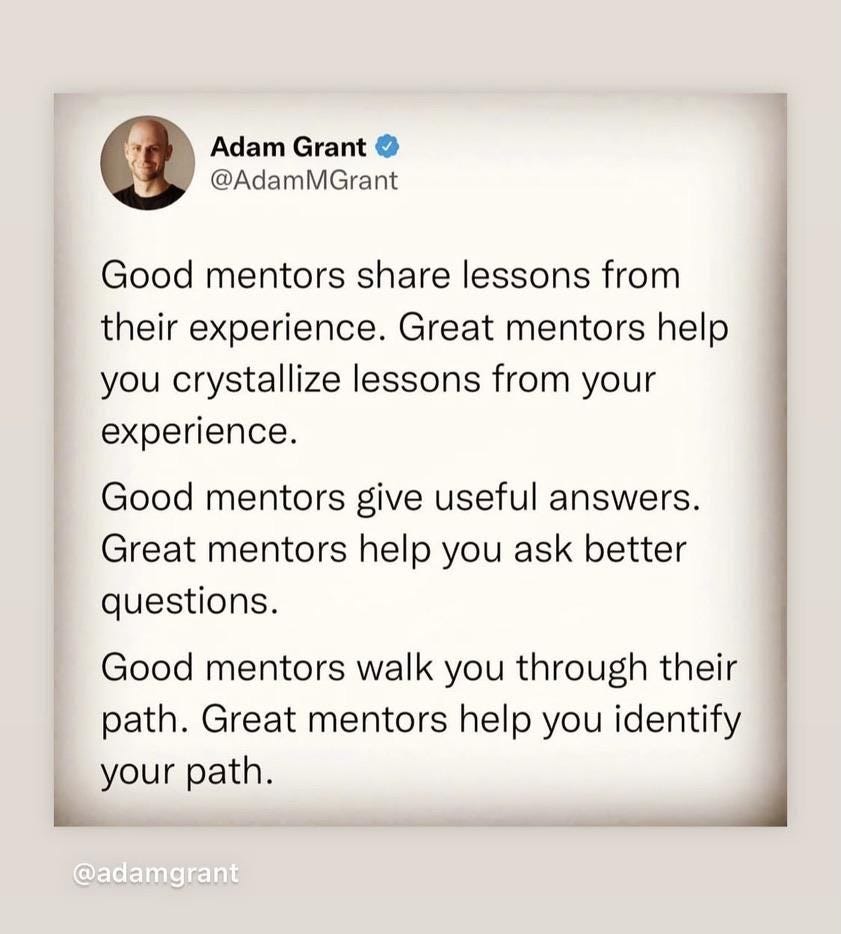
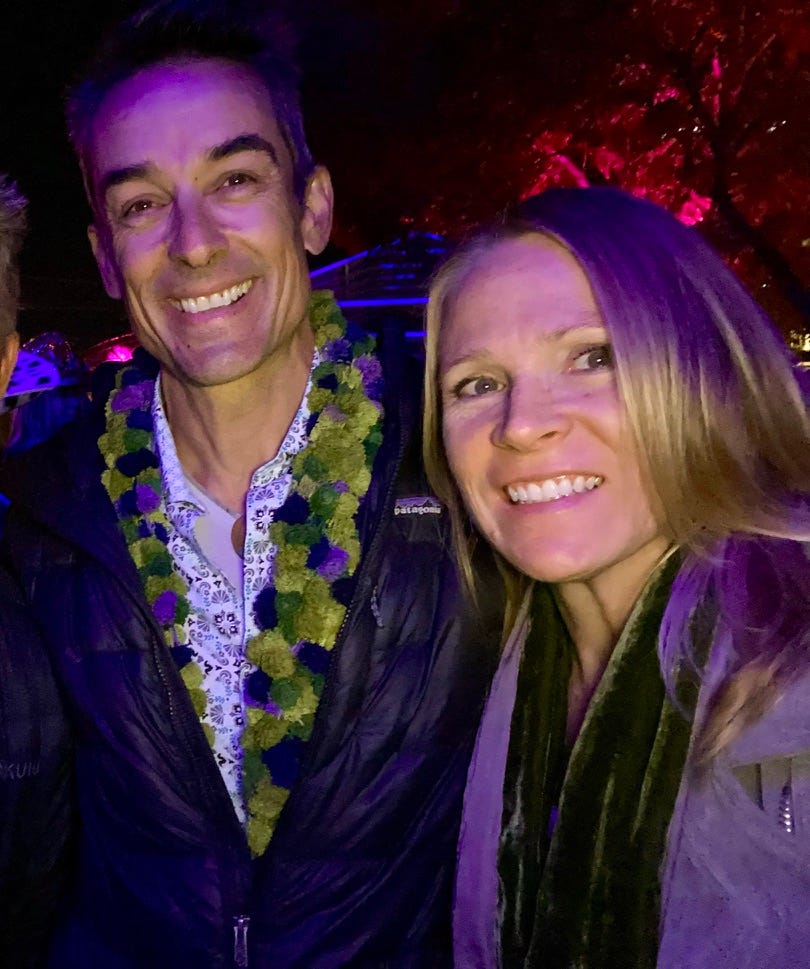


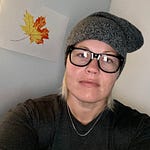
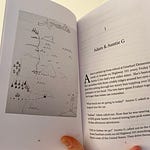
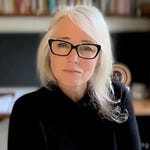
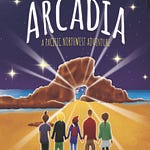

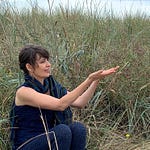

Share this post